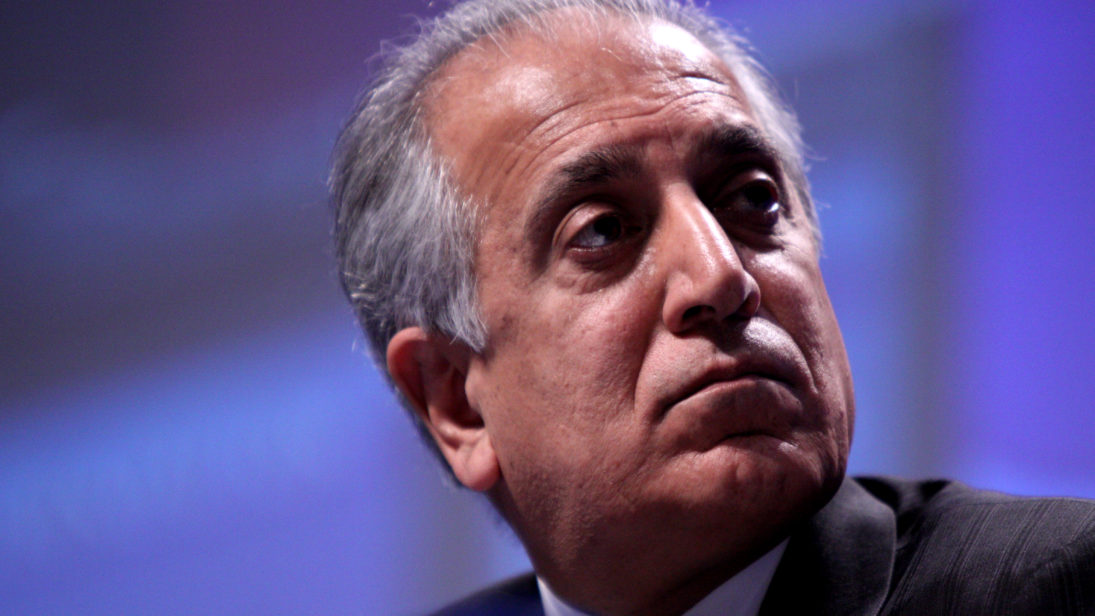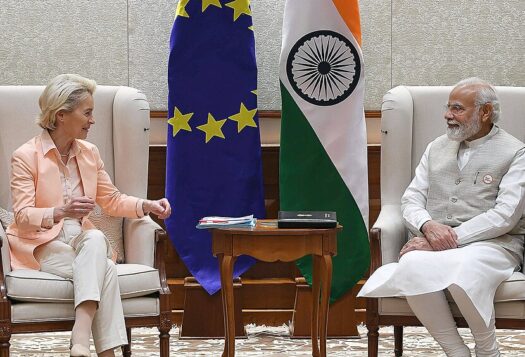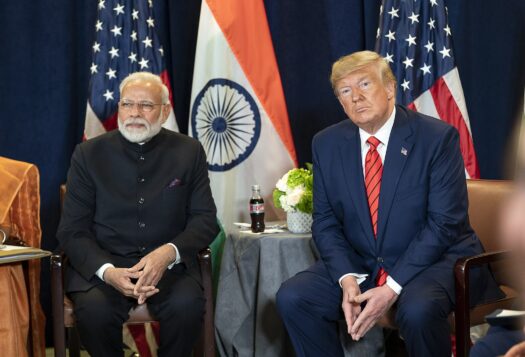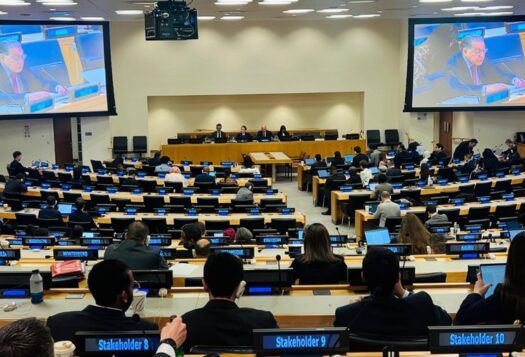
This SAV Q&A is part of an ongoing series in which SAV talks to scholars and practitioners to understand the trends and potential inflection points in South Asian security.
In a conversation with SAV editors Emily Tallo and Reja Younis, Rahimullah Yusufzai, a senior Pakistani journalist, war correspondent, and security analyst best known for having interviewed Osama bin Laden and Afghan Taliban leader Mullah Omar, discussed the prospects for peace in Afghanistan from the ongoing talks between the United States and the Taliban. Mr. Yusufzai is the current editor of The News International at the Peshawar Bureau and a correspondent of BBC’s Pashto and Urdu services in the Khyber Pakhtunkhwa province of Pakistan.
On Taliban-Afghan Rapprochement:
You identify in a recent article for Asian Affairs that “getting the Afghan government and the Taliban to talk and reconcile with each other is going to be an even bigger challenge” than the peace process itself. Do you think this rapprochement will be possible, and on what terms?
The Taliban do not want to give legitimacy to the Afghan government since they believe that it is powerless. They think that this government is not going to last. This is their belief. It seems that they are waiting as they have waited in the past. It will be interesting to see what is going to happen after the tweets that Hamdullah Mohib, National Security Advisor, sent out since he essentially speaks for President Ashraf Ghani. His words reflect the President’s anger and frustration. It is evident that they are now targeting Zalmay Khalilzad, which is rather strange because Khalilzad used to go to Kabul before and after every round of talks with Taliban and take the Afghan government into confidence. Khalilzad was keeping the Afghan government updated about the talks. As far as we know, in every meeting he was also putting pressure on the Taliban to agree to hold talks with the Afghan government.
Perhaps the Afghan government is alienating the American government. The Trump administration will not be amused by all this. After all, Khalilzad represents the United States and through this move the Afghan government is also putting pressure on Taliban, basically saying, “Talk to us. Zalmay Khalilzad does not represent us.”
Thus, even though the Afghan government was not represented in the Qatar talks, in a way Khalilzad was speaking on its behalf. That is why I’m a bit surprised that the Afghan government has chosen to take him on. Perhaps the Afghan government is alienating the American government. The Trump administration will not be amused by all this. After all, Khalilzad represents the United States and through this move the Afghan government is also putting pressure on Taliban, basically saying, “Talk to us. Zalmay Khalilzad does not represent us.” However, I won’t say this is going to lead to a break between the Americans and the Afghan government but there will be a lot of mistrust in the future between the two. Moreover, Khalilzad will be going to Kabul I believe, but I don’t think he will be welcome there anymore.
On the Taliban’s Position in Peace Talks:
In an interim government, what kind of role do you think that the Taliban is seeking? What kind of role would it be willing to accept?
The Taliban have not discussed the issue of an interim government yet, even though there will likely be an interim government which will be proposed by all sides that are party to the conflict. Perhaps the Taliban will name some people, and they will be taken in. If it agrees, the Afghan government will have its own nominees, and maybe the Americans and the opposition will also have their nominees. This will be an acceptable caretaker government which will bring reforms, implement the peace agreement, and possibly hold elections.
This is what could happen, but I do not think all these aspects have really been discussed in detail. Or if there has been any agreement, I am not of the opinion that the Taliban will join the interim government. I think they will stay out, but they will have a role to play in selecting the people who will be a part of the interim government. I think the Taliban will not share power with the present Afghan government. They will stay out of any government, be it regular or interim. They still have not decided if they want to take part in elections or accept the kind of democracy that Afghanistan has. I doubt that they will become part of any power arrangement at this stage.
Why would the Taliban rather stay out of the government than take power through a power-sharing arrangement?
The Taliban do not really recognize the Afghan government, or the present set of rulers. They do not want to share power with them–with people against whom they have been fighting and whom they call puppets. I think they will try to maintain that principle. However, if they take part in the elections and are able to form a government or to form a coalition government, that will be something different because that will reflect the will of the people of Afghanistan. Then maybe they will have to accept it, but at this stage I don’t think they will share power with the present set of rulers.
Do you see it as a possibility that the Taliban may agree to a power-sharing arrangement and then try to regain control of the country by force?
The Taliban is perhaps hoping that once foreign troops withdraw, the Afghan government, however tenuous, will collapse. They might not mention it, they might not make a statement about it, but they hope that the Afghan government will become weaker by the day, once the foreign troops are gone.
The Taliban is perhaps hoping that once foreign troops withdraw, the Afghan government, however tenuous, will collapse. They might not mention it, they might not make a statement about it, but they hope that the Afghan government will become weaker by the day, once the foreign troops are gone. The Americans also hope that the Taliban will not be able to get all their demands accepted in these negotiations, and that there will be defection and division in the Taliban ranks as a result. In fact, this might what maybe they are hoping for. There are these secret unmentioned wishes which may be harbored by both sides, but on the surface, they say we mean business, we want peace.
The Americans have already said there is going to be no military solution or military victory. The Taliban are not expressing this publicly, but privately they also admit that there will not be any military solution. The reason they are negotiating is because the Taliban have concluded that they cannot have a decisive military victory. If you agree to negotiate it means you are willing to give and take. This has happened on both sides—they have concluded that there won’t be any military victory, and so they are talking and trying to achieve whatever is possible with some give and take.

Do you think that the Taliban is a unitary organization, or are there divisions that could emerge?
As far as I know, because I have been following the Taliban since 1994-95 when they emerged, I think there may be minor splintering, but it will not be large scale. There could be some different voices, perhaps a small number of people may defect, maybe they will join the ISIS [Islamic State – Khorasan Province], or maybe they will just stay away. That is possible. However, I do not think that the bulk of the group will split. The Taliban operates in a hierarchical way with supreme leader and everyone obeying him, and I think that will keep them intact. In addition, if they haven’t splintered say since losing power in 2001 and lasted 18 years despite all the pressure, I expect them to remain intact and remain united in the future as well.
On Pakistan and the Taliban:
What would Pakistan perceive to be a desirable outcome of the negotiations?
We all know Pakistan has had contacts with Taliban since the beginning. These contacts were very deep, and these contacts did not break when the Taliban lost power. Thus, Pakistan would not break with Taliban even though nowadays we sometimes hear that Pakistan is not very happy with Taliban because the Taliban has not accepted the Pakistani proposal that Taliban should also negotiate with the Afghan government. Pakistan also believes that the Taliban should agree to a ceasefire. Pakistan has been pressing the Taliban to accept these two demands, but they have not, so the Taliban is trying to stay independent. They are happy to be holding these talks in Qatar instead of Pakistan because they can trust the Qataris more, especially since they had this particular commission office there since 2010 and the Qataris have been very generous towards them. What Pakistan now wants is that Pakistan should remain updated about what is happening in these talks, and that any agreement should cater to Pakistan’s interests in Afghanistan.
If there is a fully Taliban government, Pakistan believes that this will not bring peace. Many Afghans and many groups will not accept the Taliban government and there will be a continued fighting, which will displace many Afghans and they will come to Pakistan. We already have 2.5 million Afghans living in Pakistan. Secondly, Pakistan believes that if Afghan Taliban captures power in Afghanistan and they use force, this will embolden the Pakistani Taliban and they might try to do the same thing in Pakistan. Pakistan doesn’t want the Taliban system in their country, or their interpretation of Islam. This is why they say we can’t have a Taliban system in Afghanistan. These are the kind of views we hear from military officers with whom we interact. They can support a power-sharing arrangement between the Taliban and the rest, but do not want an exclusive monopolized Taliban government in Afghanistan.
On the Fragility of Peace:
Is it possible to have some sort of stability in Afghanistan? Or is the peace going to be very fragile no matter what?
Since this conflict has been going on for the last four decades, you cannot be optimistic that Afghanistan will finally turn the corner and there will be peace, tranquility, and stability. I think that’s why we have to keep our fingers crossed. However, I also think that never in the past 18 years has such a serious, concerted effort for peace been made.
Since this conflict has been going on for the last four decades, you cannot be optimistic that Afghanistan will finally turn the corner and there will be peace, tranquility, and stability. I think that’s why we have to keep our fingers crossed. However, I also think that never in the past 18 years has such a serious, concerted effort for peace been made. That is why there are more expectations and hope this time than ever before in the past. I think the Americans are actually very serious about it, and the Taliban is also serious. These are the two main parties of conflict at this stage, apart from the Afghan government.
I believe that the Taliban have made a point—they have established that they are a force to be reckoned with, and that without them there can be no peace in Afghanistan. That is why everyone wants them to negotiate with the other parties. I think they believe they have made a point and they want to demonstrate that their struggle against foreign forces will finally bring them some kind of victory. They have been telling their supporters for the last 18 years that we are fighting foreign forces, and if they can force the American forces to leave, they will claim it as a victory. I think once they have established that, other issues might be secondary for them. The most important thing that they want to show is that they fought a justified war against foreign forces and forced them to leave, first through military means and then through a peace agreement. I also think that Afghanistan will eventually have to embrace some form of democracy. The Taliban may also have to transition from being an armed militant group to a political party. If they agree, if they transform and take part in elections, they will get their chance to come into power through democratic and peaceful means rather than by force.
***
Click here to read this article in Urdu.
Image 1: Gage Skidmore via Flickr
Image 2: Yuri Kadobnov via Getty


